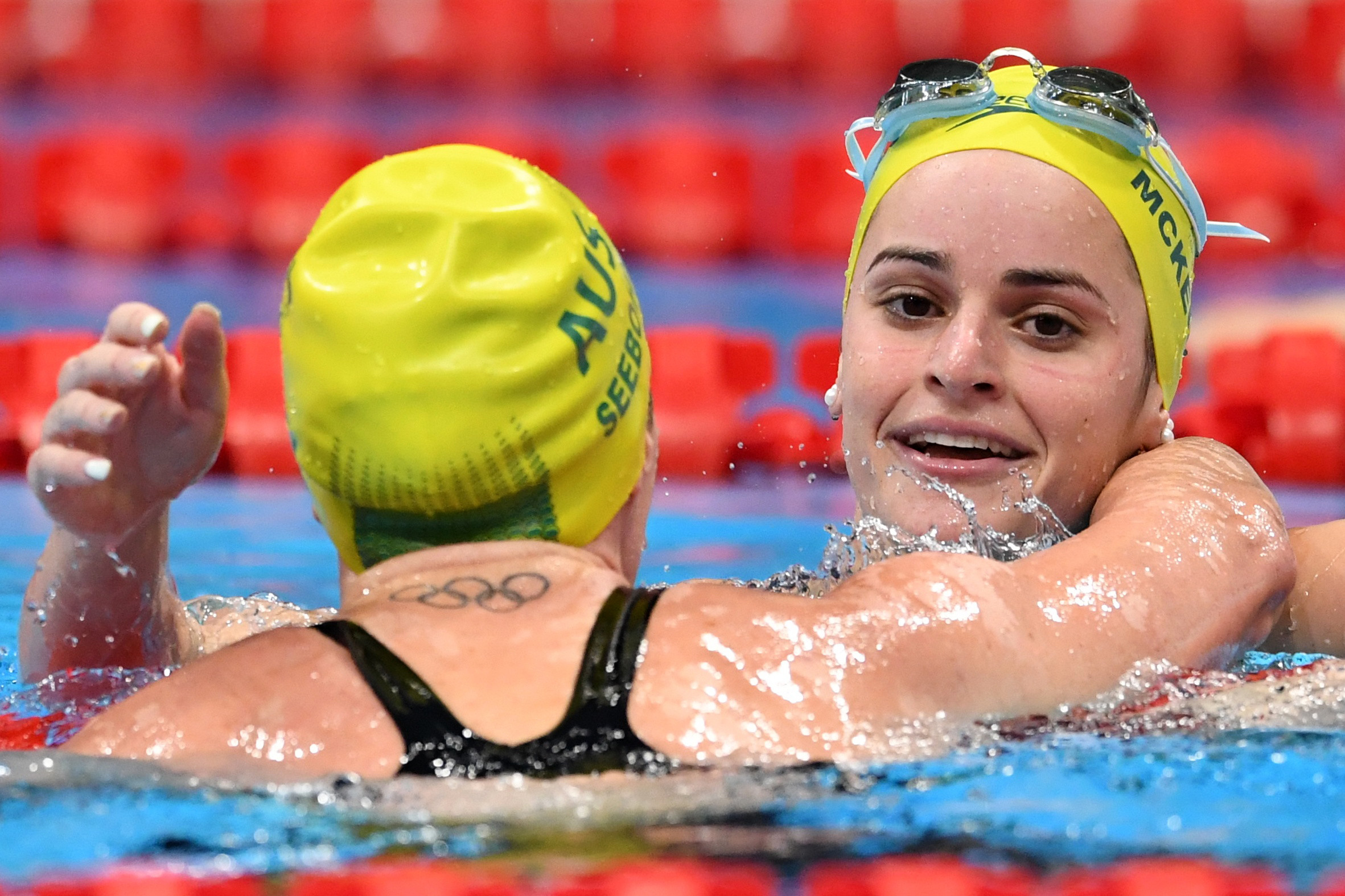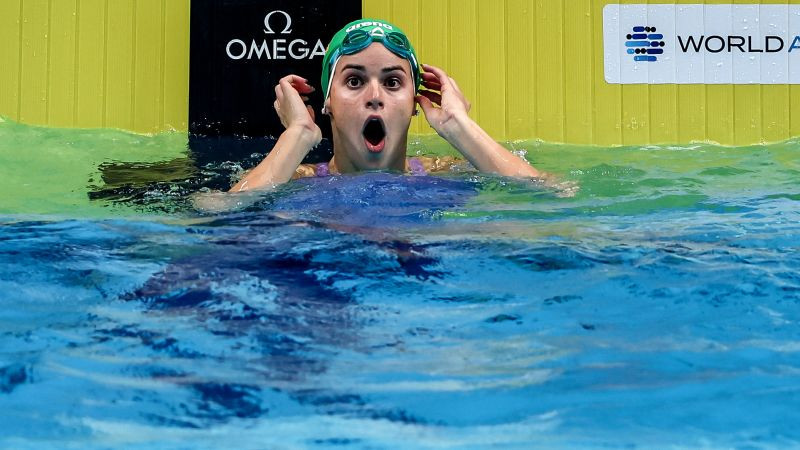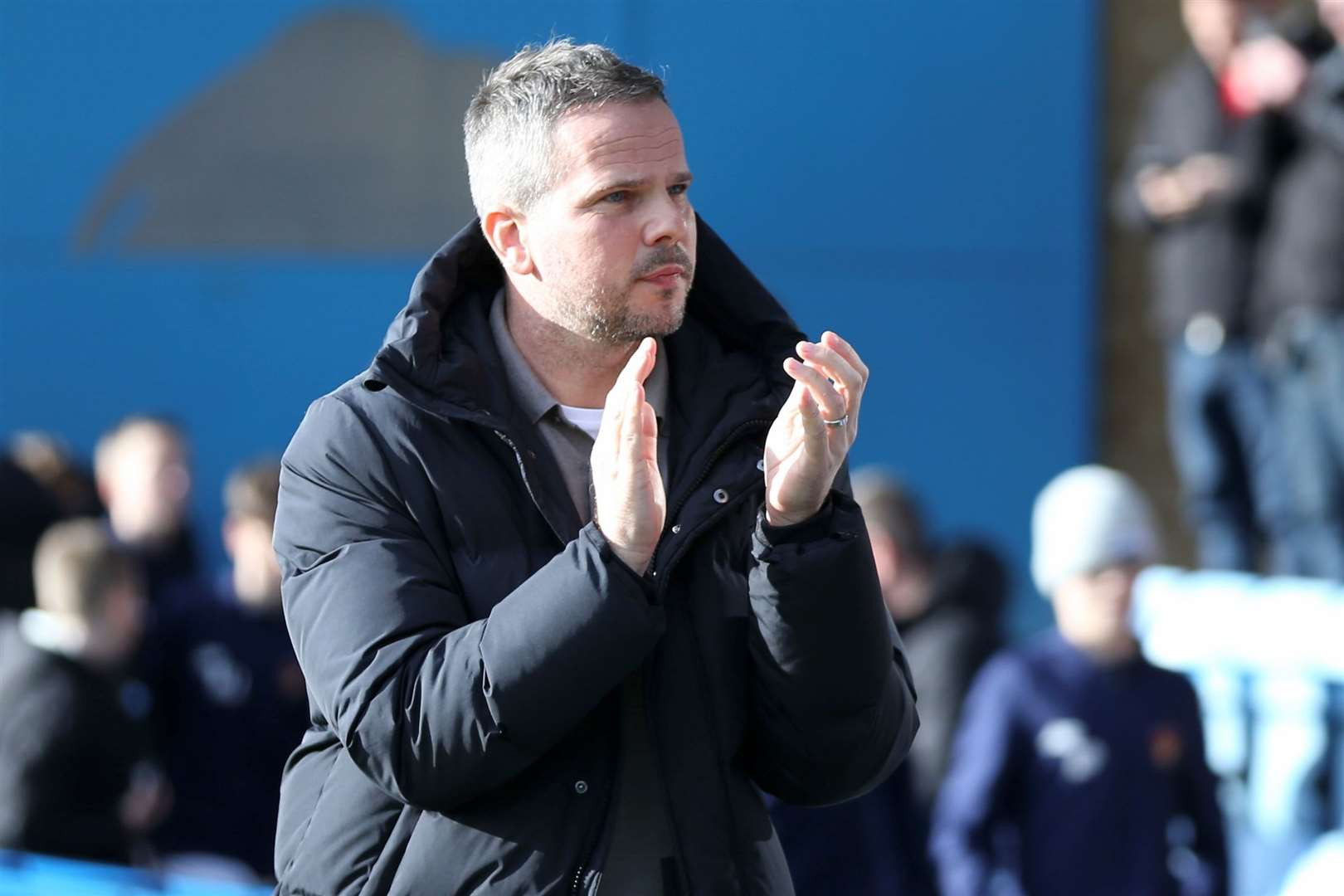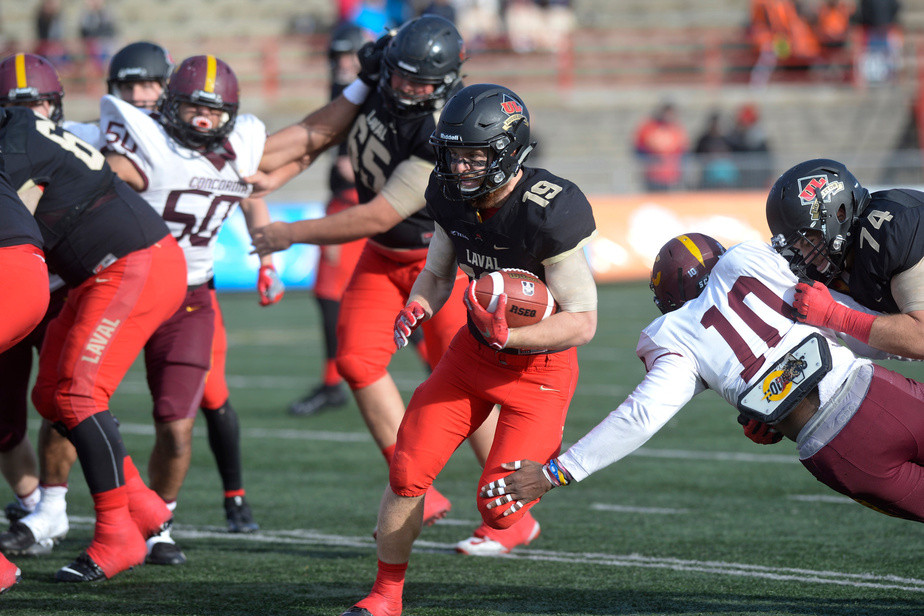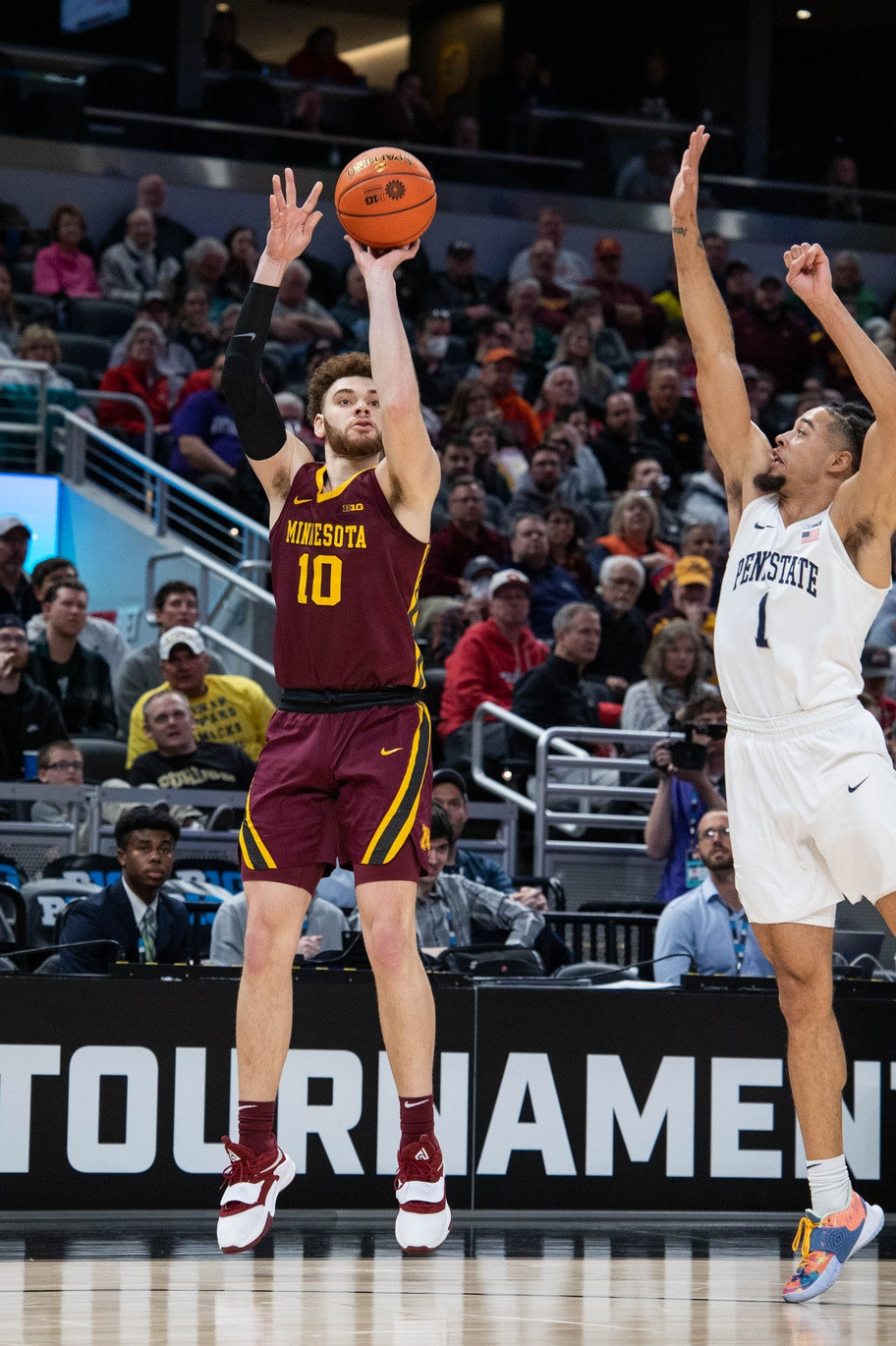History was made at the pool in Paris on Saturday morning AEST. For most of the 20,000 or so who made up the wall of noise (Emmanuel Macron included), that sentence refers to Leon Marchand. For the (far fewer) Australians present at La Defense Arena, it is a direct reference to Kaylee McKeown.
It stands to reason that history comes at you louder when the hometown poster boy has just won his fourth individual gold medal at these Olympics alone. And it makes sense that things would be less loud for the backstroker winning a race of rare significance some 15,000 kilometres away from home.
But McKeown has never been a headline generator in the vein of Ariarne Titmus and Mollie O’Callaghan in Paris, and she is not often talked about in the way Emma McKeon was in Tokyo three years ago.
Even so, it is wild that, in the hours before the 23-year-old defended her 200m backstroke crown, statistics were being checked and double-checked that a win in this final would, indeed, make McKeown the first Australian athlete to win four individual Olympic gold medals. That it would bring her overall gold medal haul to five and level with Ian Thorpe. That Thorpe – an undisputed swimming icon - actually has one less individual gold than the 23-year-old about whom he was now praising on Nine’s commentary for “creating Australian history”.
Kaylee McKeown's Historic Double
How does history happen quietly? How does McKeown become the first swimmer – male or female, from any country – to complete the 100m and 200m backstroke double at consecutive Olympics, without the anticipation of that (strong) prospect dominating Australia’s pre-Games swimming narrative?
Perhaps it is as her mother Sharon told this masthead in Paris, that “I personally don’t believe she gets the full recognition that she should get”. That the more sexy strokes get more attention.
McKeown is rightly receiving recognition now. In the 200m final, having chased American arch-rival Regan Smith at every turn, she broke free in the final lap to prevail in an Olympic-record of 2:03.73 – 0.59 seconds slower than the world record she set last year.
She has a medal from every event she has contested at the Olympics – the tally stands at six from six and could yet climb by the time the program is done. A bonus win in the 200m individual medley final on Saturday would bring McKeown equal with Emma McKeon’s all-time high of six golds, two of which came in individual races in Tokyo.
The Unassuming Champion
McKeown herself is understated about all of this. Are four individual golds something she could ever have imagined as a kid?
“Not in a million years, growing up,” she said. “I’ve always just idolised my sister and Emily Seebohm, and seeing what they do in the sport. Then training alongside Emma McKeon as well – one of the greats in the sport – and being friends with Molly [O’Callaghan].
“I couldn’t ask much more, to be honest with you. Having that motivation and seeing those girls, not just the Aussie girls, but the whole world. Female sport has been unreal this year, and I’m just grateful to be a part of that.”
During the medal ceremony, McKeown shook her legs on the podium, keeping warm for the IM semi-final she was about to swim. Then she ran over to her coach, Michael Bohl, gave him a hug and draped her medal around his neck for safekeeping.
Less than 15 minutes after that, she was back in the pool qualifying – just – for that final. Looking knackered from the physical and emotional fatigue of the night and squeezing in at seventh place, with fellow Australian Ella Ramsay qualifying in eighth.
“I probably took my [200m] race out a little bit too hard,” McKeown said. “I was pretty nervous going in there tonight. I’m not one who gets overly nervous – probably more anxious than anything – so I went out hard and just held on for dear life.
“I did the same thing in the medley. I didn’t think I would make the final, so I’m super stoked to be a part of that and just have fun with it tomorrow. My main events are out of the way, and tomorrow’s just a fun time for me.”
A Legacy of Resilience and Determination
Historic is an overused adjective. But on Friday night, a packed La Défense Arena witnessed something truly historic in the Paris Olympic swimming pool. Kaylee McKeown became the only Australian swimmer to ever defend not just one but two individual Olympic gold medals. On Tuesday night, it was 100m backstroke crown in an Olympic record time. Seventy-two hours later, McKeown did it again – defending her 200m backstroke gold medal from Tokyo.
McKeown’s gold added to an electric eight minutes at the pool for Australia, after Dolphins veteran Cameron McEvoy, appearing at his fourth Olympics, won gold in the opening race of the evening, the men’s 50m freestyle. Australia now lead the Paris Olympics swim meet medal tally with seven golds, five silvers and one bronze; two nights of competition remain.
But where to start with McKeown’s history? Four individual gold medals in three years across two Olympics makes her the most individually successful Australian Olympian of all-time. Dolphins teammate Emma McKeon has six golds, four from relays. Ian Thorpe and Mollie O’Callaghan both have five golds, but again relays have played their part. Friday’s triumph gave McKeown her fifth gold medal, the four individual victories and a medley relay win in Tokyo.
Before Friday, only eight Australian Olympians had three individual gold medals to their name – an illustrious list that included Thorpe, Ariarne Titmus, Paris flag-bearer Jess Fox and past greats Dawn Fraser and Betty Cuthbert. McKeown has now overtaken that list to sit alone on four individual gold medals. Those seven other names were already rarefied company. From Friday, McKeown is in a league of her own.
The momentousness does not stop there. Following Friday’s success, McKeown is level with legendary Hungarian swimmer Krisztina Egerszegi on four Olympic backstroke gold medals. No other woman in Games history has more than two. Egerszegi is typically considered the greatest female backstroke swimmer of all time. McKeown now surely ranks alongside her. No swimmer, male or female, from any nation, has ever won the backstroke double and then defended it at the next Olympics. For McKeown, historic is the only appropriate adjective.
Entering the race as the world record holder, plus 2022 and 2023 world champion, all eyes were on McKeown in lane five. The Australian touched third at the first turn, third again at the halfway mark, before powering home in her typical style, holding off a late charge from American rival Regan Smith to win in an Olympic record time, 2:03.73.
Asked whether she could have imagined such a historic feat at the start of her career, she said: “Not in a million years. Growing up I’ve always just idolised my sister [Taylor McKeown] and Emily Seebohm, and seeing what they do in the sport. And then training alongside Emma McKeon, one of the greats in the sport, and being friends with Mollie [O’Callaghan].
“I couldn’t ask for much more to be honest with you. Having that motivation, seeing those girls – not just the Aussie girls, but the whole world. Female sport has just been unreal this year and it’s great to be a part of that.”
McKeown’s win continued a golden run for the Dolphins on day seven of the swimming program, coming just minutes after McEvoy won gold. The 30-year-old veteran blazed away from the field in the final metres to touch first in a time of 21.25. The crowd went wild for Frenchman Florent Manaudou, who finished third, but the jubilation provided a fitting soundtrack for McEvoy’s win.
The oldest member of the Australian swim squad, McEvoy is enjoying a late-career resurgence. The sprinter quit the sport in 2021 following the Tokyo Games, but returned with a novel training approach and soon found success – winning the one-lap dash at the 2023 world championships and only missing out on gold at this year’s titles by one one-hundredth of a second.
A Testament to Dedication and Talent
McEvoy’s win is historic in its own right. Until now, no Australian man has won a medal in the 50m freestyle at the Olympics; the previous closest was fourth, by Ashley Callus at Beijing 2008.
Less than an hour after her gold medal winning swim, McKeown was back in the water in the semi-finals of the 200m individual medley. The fatigue showed as Australia’s golden girl placed fifth, scraping into the final as the seventh fastest qualifier. Dolphins teammate Ella Ramsay will join her in the medal race, finishing eighth overall.
The tremendous and terrifying thing about Kaylee McKeown’s exceptional success is that, just 23, the Queenslander might have at least one more Olympics ahead of her. Even before the Paris 2024 swim meet ends, she will have two medley relays (the women’s race and the mixed relay) and the 200m individual medley.
McKeown did not contest the four-stroke discipline in Tokyo, but owns the fastest time this year. If four individual gold medals are historic, another adjective might be required on Saturday night when McKeown goes for her fifth.




